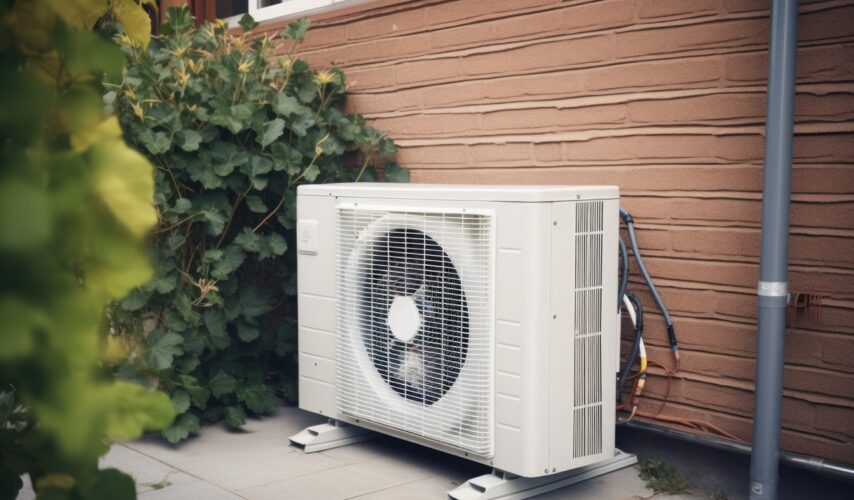
Why Does My Heat Pump Smell?
If you are wondering why your heat pump is emitting a strange smell, you are not alone. Many homeowners encounter this issue and find it to be quite concerning. The unpleasant odor can be a sign of a potential problem within the system that requires immediate attention. In this blog, we will discuss the common causes of heat pump odors and how our professional HVAC technicians can fix it.
Why Does My Heat Pump Smell?
Dirty Filters
The first possible cause of an odor in your heat pump is related to the air filter. If the filter is not cleaned or replaced regularly, it can become clogged with dust, dirt, and other debris. This will impede the airflow and cause the system to work harder than it should. Moreover, the accumulated debris can create an unpleasant smell that can circulate throughout your home. To solve this problem, you can clean or replace your air filters every three months, or more frequently depending on the type of filter you use.
Mold Growth
Mold and mildew growth is another possibility when it comes to the cause of the odor in your heat pump system. The constant moisture within the system, coupled with debris, creates a breeding ground for the growth of mold and mildew. The mold can grow inside the ductwork, the air filter system, and other components of the heat pump, resulting in a musty odor. If a heat pump smells musty, it’s hazardous to your health and needs to be addressed immediately. A certified heating and air conditioning system technician may recommend duct cleaning to remove the fungal growth as well as duct sealing to eliminate excess moisture and debris inside the system.
Dirty Evaporator Coils
Dirty evaporator coils can also be responsible for the foul smell emanating from your heat pump – it often smells like dirty gym socks, which is why this smell is referred to as dirty sock syndrome. Dirt and debris can accumulate on the surface of the coils, which would reduce the efficiency of the system and create an odor. If left unchecked, this problem can cause the evaporator coils to freeze up, leading to costly repairs. An HVAC technician can clean the frozen or wet evaporator coils with a special cleaning agent to remove the accumulated debris safely.
Refrigerant Leak
A refrigerant leak can also contribute to the odor in your heat pump. The refrigerant is a chemical used to cool and dehumidify the air flowing through your home. A leak in the refrigerant line can result in the discharge of a harmful gas called Freon. This gas can create a strong, unpleasant odor similar to that of ether or nail polish remover, or it may smell sweet. This is a severe issue that requires immediate attention. You should shut off your heat pump and contact a professional HVAC technician right away for a repair.
System Malfunctions
Finally, the heat pump may emit a burning smell. A burning heat pump odor could be due to a malfunctioning motor or an electrical issue. A burning odor is a sign that the system is overheating, which can lead to a fire. In this case, you should turn off the heat pump and call a professional HVAC technician to inspect the unit for any potential hazards. Meanwhile, fish heat pump smells could indicate an overheated motor, a wiring problem or melting plastic components or coatings.
End Heat Pump Smells Today by Calling Hans
In conclusion, if a heat pump smells like any of the issues we mentioned, it’s a warning that should not be ignored. Several underlying causes could lead to this problem, and it’s crucial to identify and solve them immediately to prevent any severe damage to your home or health. The best way to ensure your heat pump is working efficiently is to have it repaired and maintained by a certified HVAC technician. At Hans Heating and Air, we provide quality heat pump repair and maintenance services to homeowners in the Montgomery, AL area. Call us today to schedule an appointment and ensure your heat pump is working properly.
